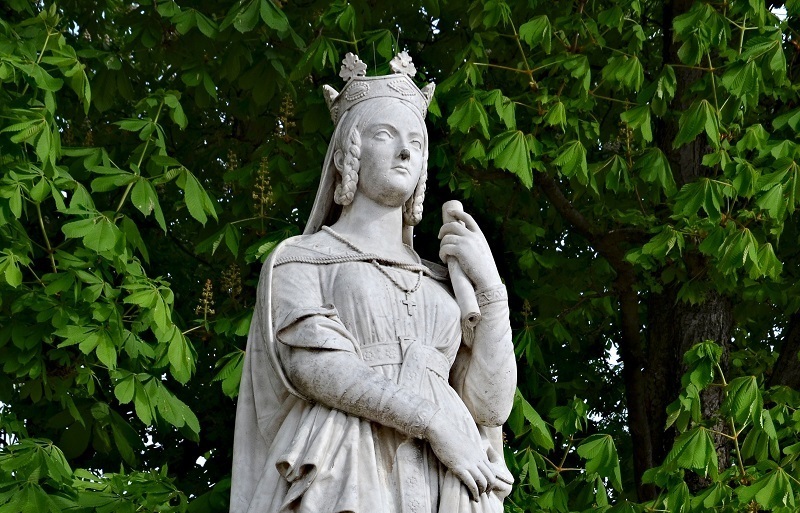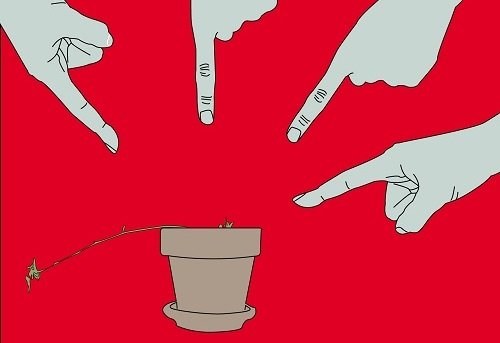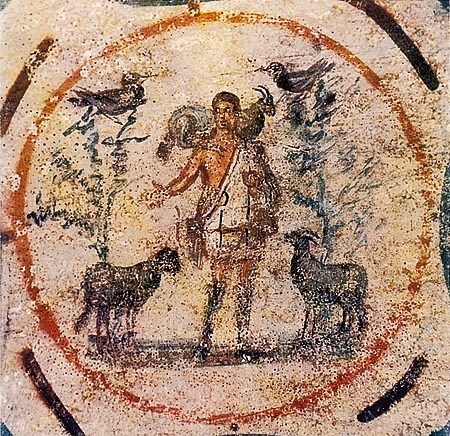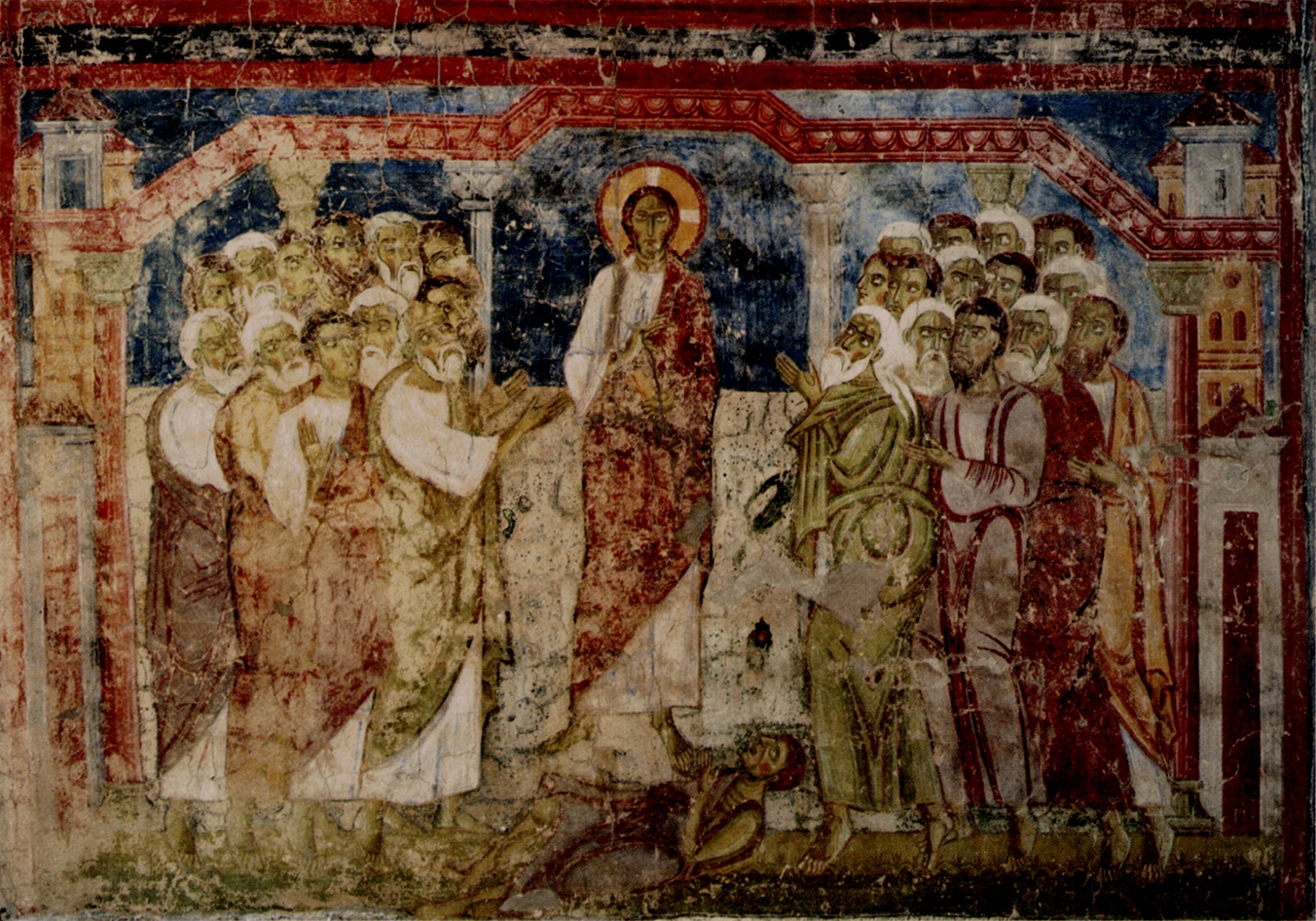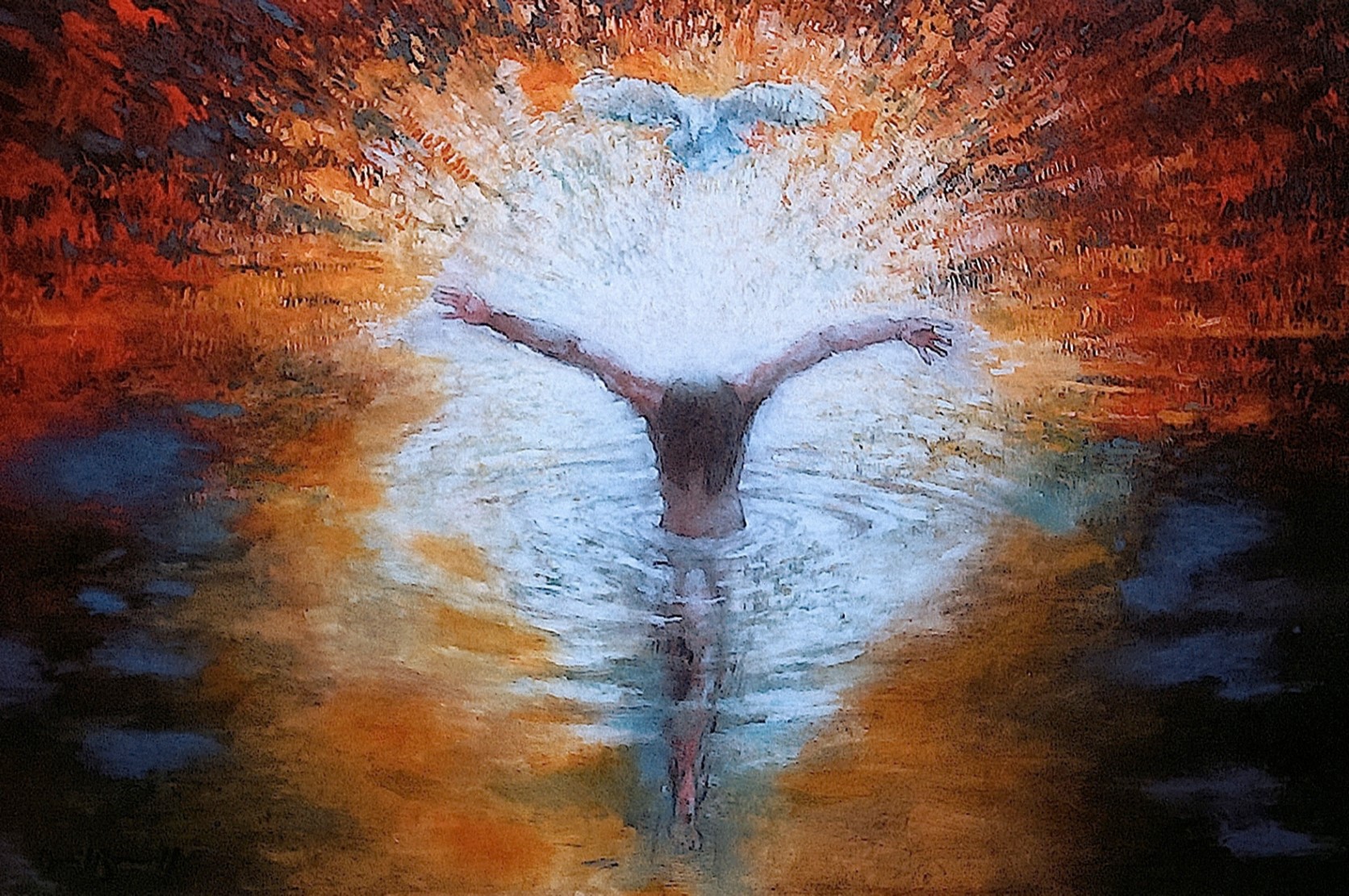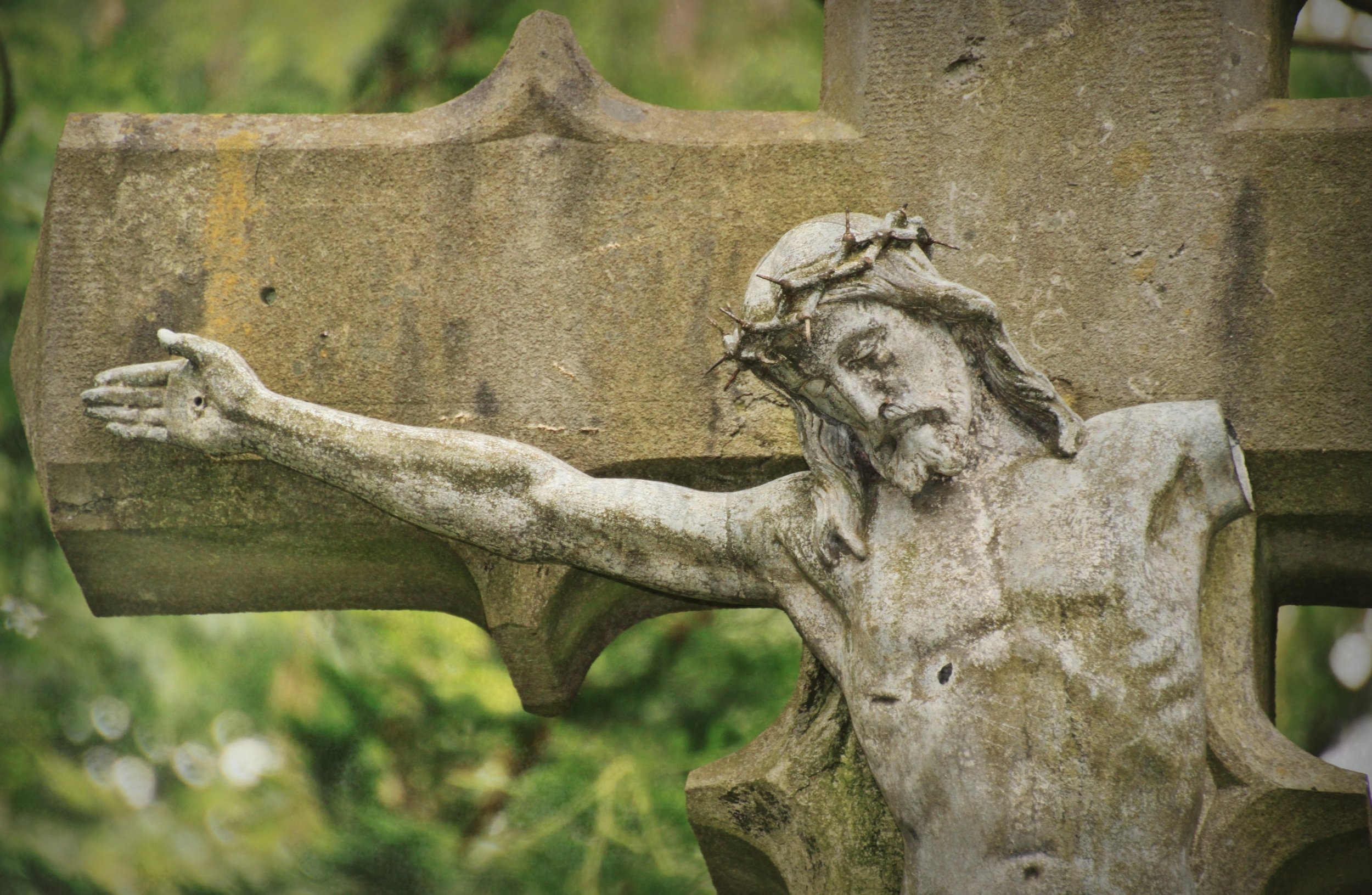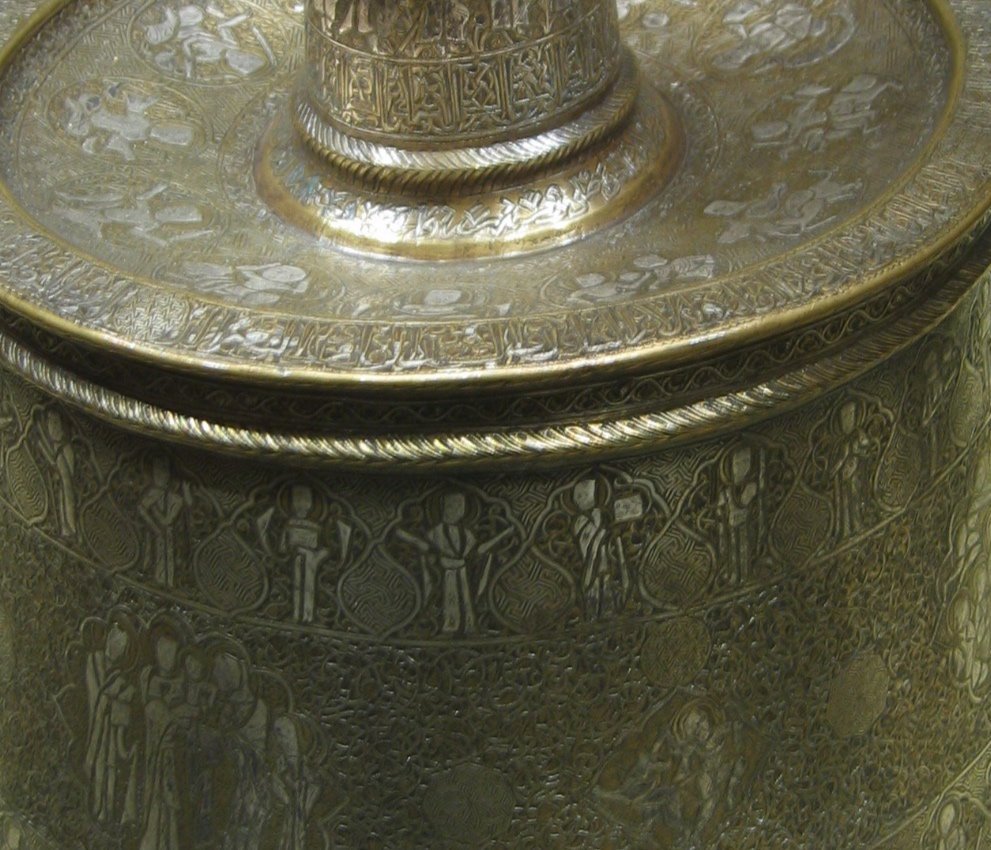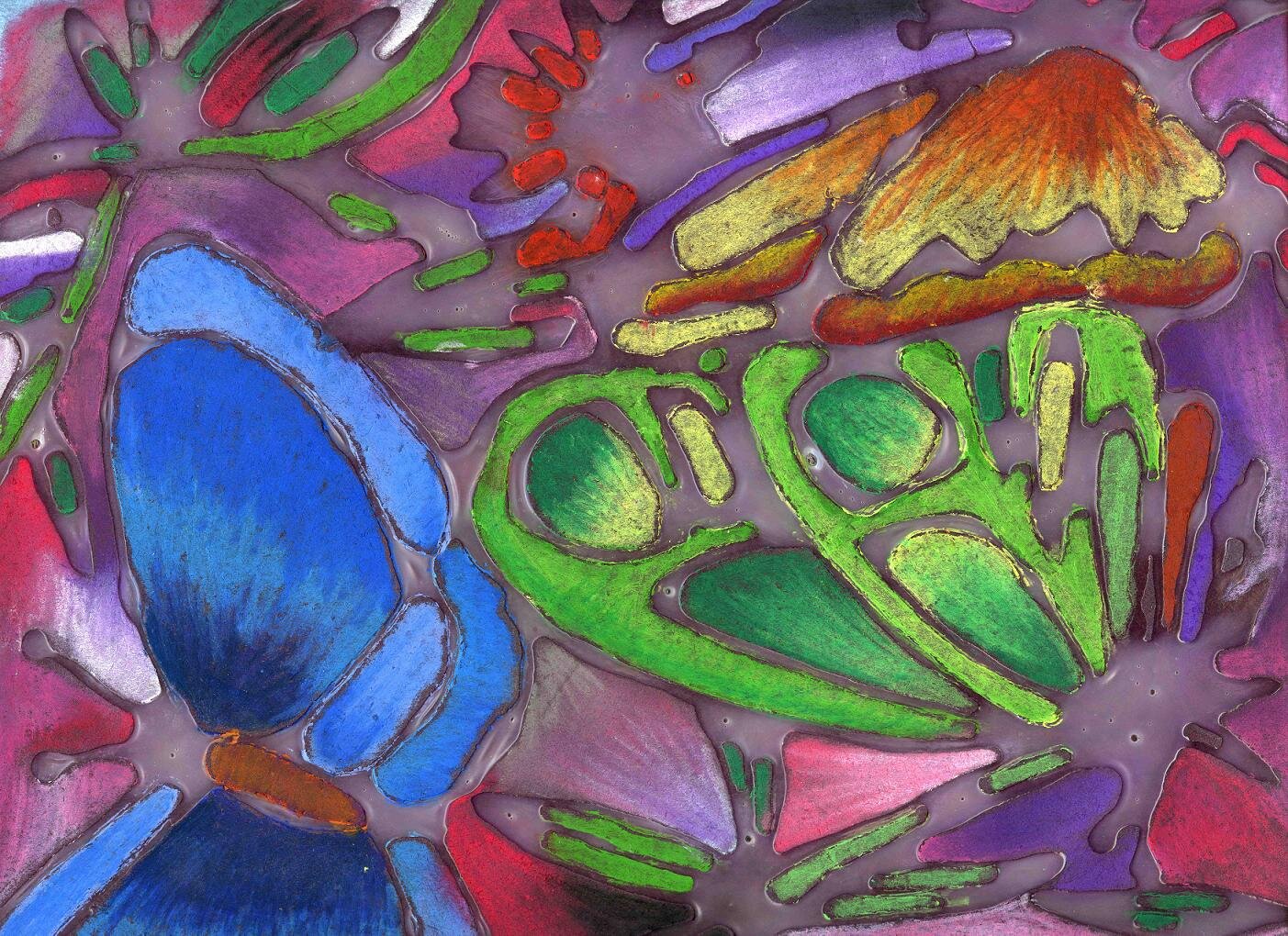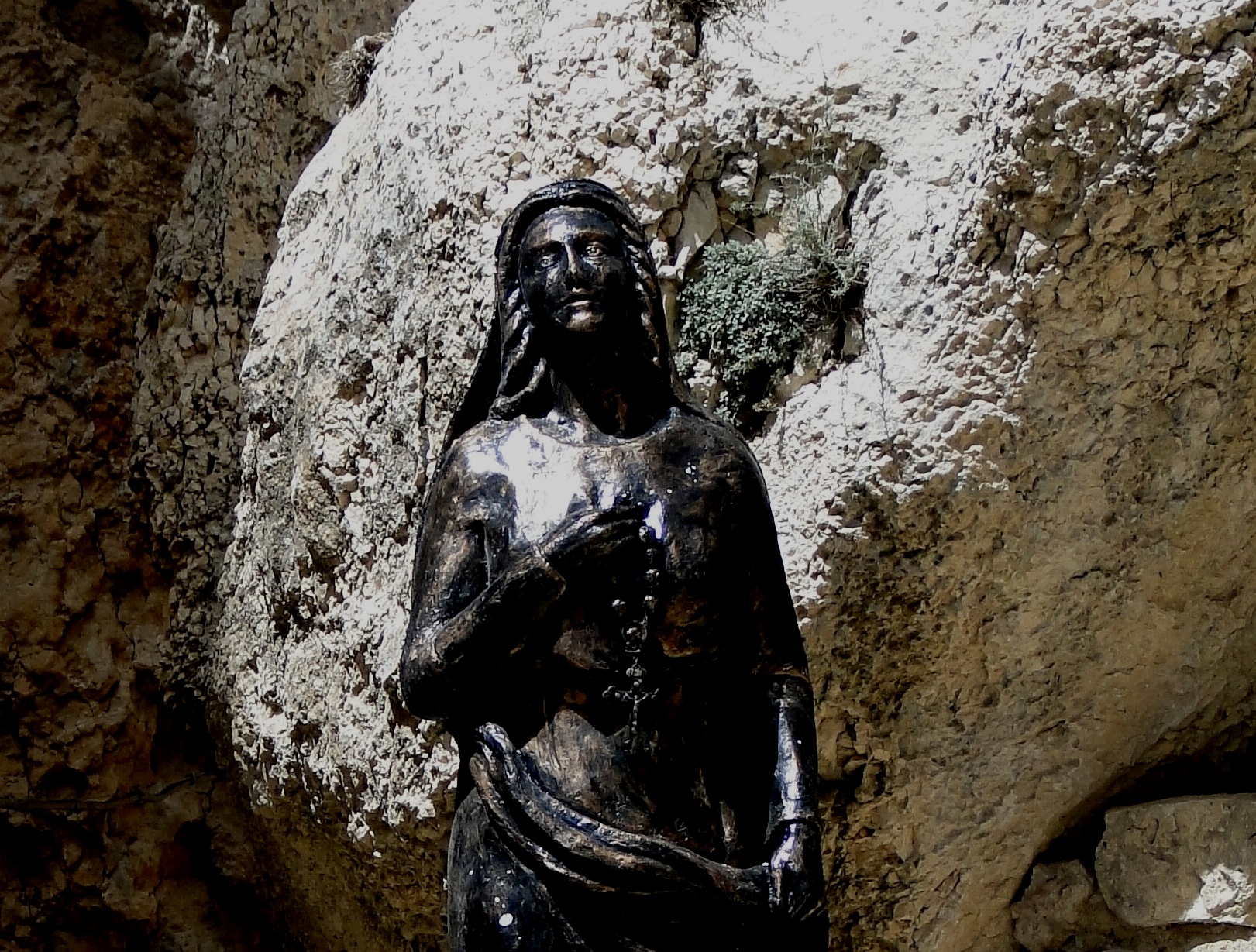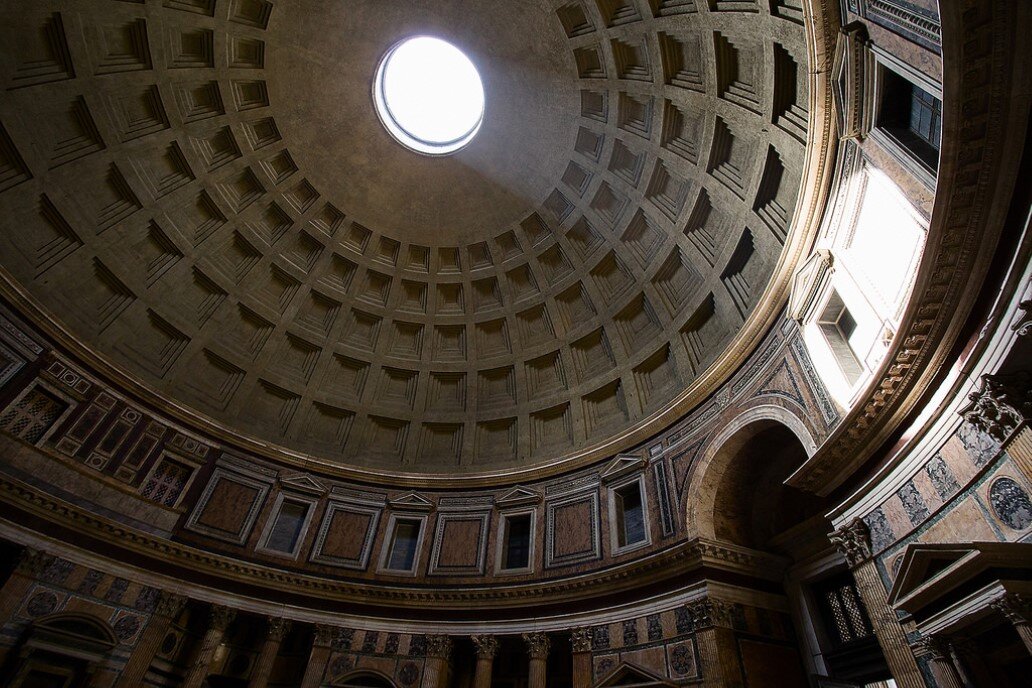Social Justice Implications
Of Atonement Theology
Photograph: The statue of Saint Bathilde which stands in the Jardin Luxembourg in Paris, France. Photo credit: Victor Therasse, Wikimedia Commons; cropped. Bathilde was a young British slave to the royal household of the kingdom of the Franks in the 600's. King Clovis II set her free, married her, and made her his queen. Together, they abolished the slave trade in the kingdom of the Franks in the name of Jesus. This act represents one part of Jesus' vision of restoring people to their station as God's image-bearers, in right relation to one another.
Is God’s Justice Retributive or Restorative?
Is God’s justice restorative or retributive? And what does that mean about what type of justice we wish to see expressed in society? Your theology of atonement will greatly shape your responses to those questions. See our Christian Restorative Justice Tutorial.
The video clip on the right is a short segment from our 2019 Conference: Healing Atonement. It highlights God’s restorative justice with biblical Israel in the Old Testament.
The video below is a 40 minute presentation with 20 minute Q&A by Mako Nagasawa at Gordon-Conwell Theological Seminary, on God’s Justice is Restorative, Not Retributive.
Messages and Resources Combining Atonement and Social Justice
Video of a message on Ezekiel 36:22 - 36 given by Mako Nagasawa to Highrock Brookline Church in Brookline, Massachusetts, on March 19, 2023. Message starts at the 36:25 minute mark, and the link will take you there, on YouTube.
The Healing of Human Nature in Jesus
A 30 minute video of a message given to students at Boston College, Nov 15, 2013. This message is rooted in the story of Jesus going through his baptism and wilderness temptation, in Matthew 3:13 - 4:11, reflecting his commitment to fix and fulfill his human nature by going all the way through his faithful life, death, and resurrection, in order to share himself with us by his Spirit.
Text of a message that reflects on our desire for love, meaning, and justice. Where do these desires come from? Are they connected to the God who reveals Himself in Jesus Christ? This might be called the “problem of goodness,” specifically human goodness. This was the first of three messages at a retreat. The second was God's Victory Over Human Evil in Jesus — the text of a message from Romans 6:1 - 11 about how Jesus’ death and resurrection was the way he triumphed over the corruption of sin in the human nature he took on, and how we die and rise with Jesus to share in that victory. The third was God's Victory Over Human Evil: Presenting Ourselves to Jesus, from Romans 6:12 - 14 about how we are to live with Jesus, and for Jesus, by his Spirit, to implement his victory over human evil into our lives more deeply. For more on this, see How Our Choices Shape Our Desires: Experiencing the Triune God, the text of a message on Genesis 1 - 2 and Proverbs 2 leading into questions for reflection and/or discussion. The message was given to students at Boston College, and reflects the concerns to discern God’s will as far as vocation and career and major are concerned. If you enjoy these topics, see our section on Desire: Jesus Leads Us to True Beauty.
Images of God in a Broken World
The following three messages were given at a weekend retreat. Images of God in a Broken World is the first; it explains why, in a broken world, we get the impression that if there is a “god,” that “god” is evil, at least partially. Jesus is the Image of God is the second; it is an explanation of Colossians 1:15 - 20, how Jesus is the accurate and perfect image of God despite our broken world, because he healed human nature in himself via his life, death, and resurrection. In Jesus, We Are God’s Image Bearers is the third; it is from Colossians 3:5 - 4:6, about how Jesus renews the image of God in us by his Spirit, to share God's goodness in a broken world.
The Role of Jesus in Revolution and the Pursuit of Justice
A written message, graphics included, on how Jesus inspired twentieth-century non-violent resistance movements around the world, and why. Spotlights Tolstoy in Russia; Gandhi in South Africa and India; Ahn Chang-ho in Korea; the Civil Rights Movement in the U.S.; the Filipino People Power Revolution; Solidarity in Poland; the Truth and Reconciliation Commission in South Africa. This is a shining thread of moral clarity, courage, and hope during humanity’s bloodiest century.
A written message and slides on how Jesus brought about a radical change to human history. Christian faith brought about dramatic improvements in health care and hospitals, abolition, education and schools, science and technology, criminal justice reform, and beauty and the arts.
Medical Substitutionary Atonement, Personal Healing, and Social Justice
If Jesus came to solve the problem of human evil, then you can invite people to Jesus, personal healing, and social justice, all at the same time. Jesus confronts the evil in us, evil done to us, and evil institutionalized in the world — and does so by healing the corruption of sin in human nature, first in himself, then in us by his Spirit. These are slides to a presentation given at the Honor-Shame Conference 2017, a gathering of missionaries, scholars, and ministry practitioners. See also a short Youtube video (4.5 min). Now published as a chapter in Chris Flanders and Werner Mishke, Honor, Shame, and the Gospel: Reframing Our Message and Ministry, by William Carey Publishing, 2020.
Restorative vs. Retributive Justice and the Implications for Public Life
For the Journal of Urban Ministry, June 2020. This article explains and explores the enormous difference between these two principles of justice, how to understand them in Scripture, and where in church history Christians have implemented them.
From the Atonement and Ministry Blog Series
The blog posts below address basic questions that everyone in ministry asks, sooner or later. Penal Substitutionary Atonement theology forces one to have unbiblical and troubling answers to these questions. Medical Substitutionary Atonement, by comparison, is more biblically faithful and consistent with the Trinitarian character of God.
#2: Does God Want to Undo All Human Evil? Or Does He Require It To Exist? (Aug 18, 2015)
#3: Is God Partly Evil? (Aug 19, 2015)
#4: What About Hell? (Aug 20, 2015)
#5: Does God Value Every Person? Does He Anchor Universal Human Dignity? (Aug 24, 2015)
#6: Is Retributive Justice the Highest Form of Justice? The Impact of Atonement on Criminal Justice (Sep 9, 2015)
#7: Atonement, God's Character, and Economic Justice (A Critique of Wayne Grudem) (Sep 14, 2015)
#8: How Penal Substitution Affects Your Student Loan Debt, Mortgage Payments, and "Too Big to Fail" Banks (A Critique of Tim Keller) (Sep 22, 2015)
Scapegoating: Atonement, Justice, and Politics Blog Series
The Scapegoating blog post series relates to both the topic of atonement and the topic of desire because, like fallen Adam in the garden, we desire to deflect blame, and therefore we scapegoat others. On the political level, this builds group cohesion and creates a social outsider, who is blamed for the group’s woes, who the group must exile or kill or marginalize in order to maintain a hopeful lie.
This series explores what political scapegoating has looked like in the U.S. The blog posts illustrate what happens when you believe that the highest form of justice is retributive. Penal Substitutionary Atonement theology holds that divine justice is retributive, which is why white evangelical Americans have a unusual ability to scapegoat others. Compare this behavior to what Scripture actually calls Christians towards.
